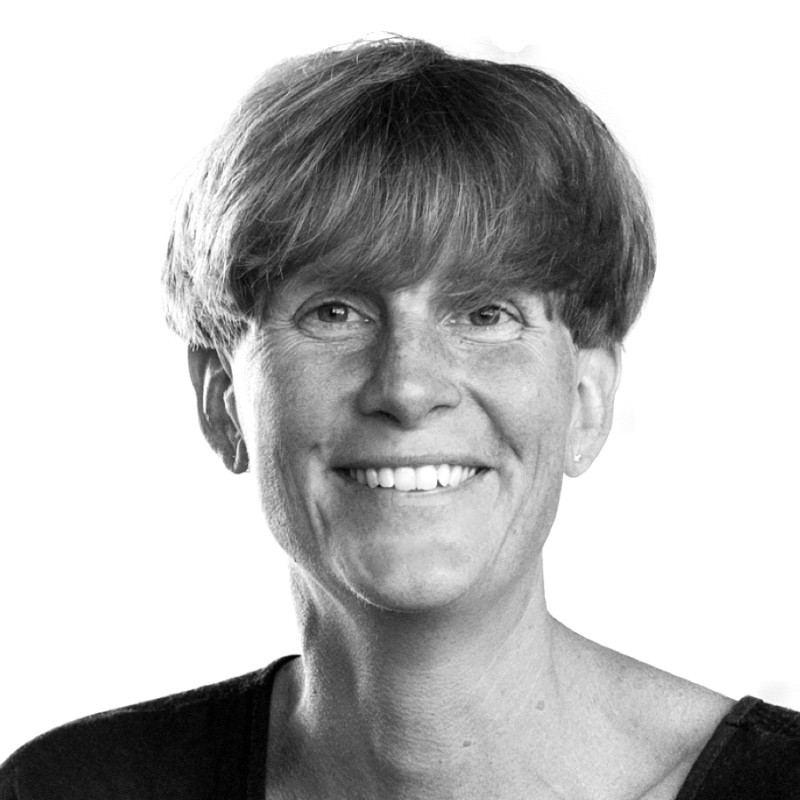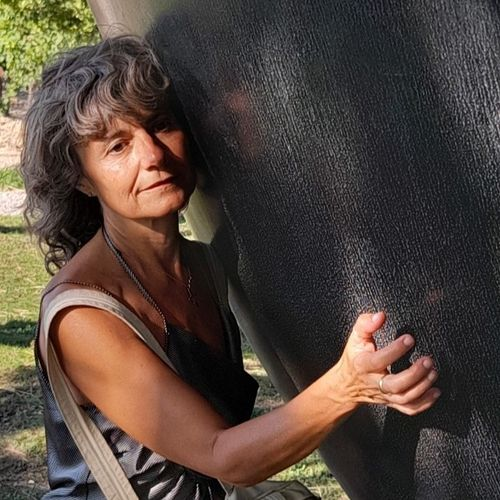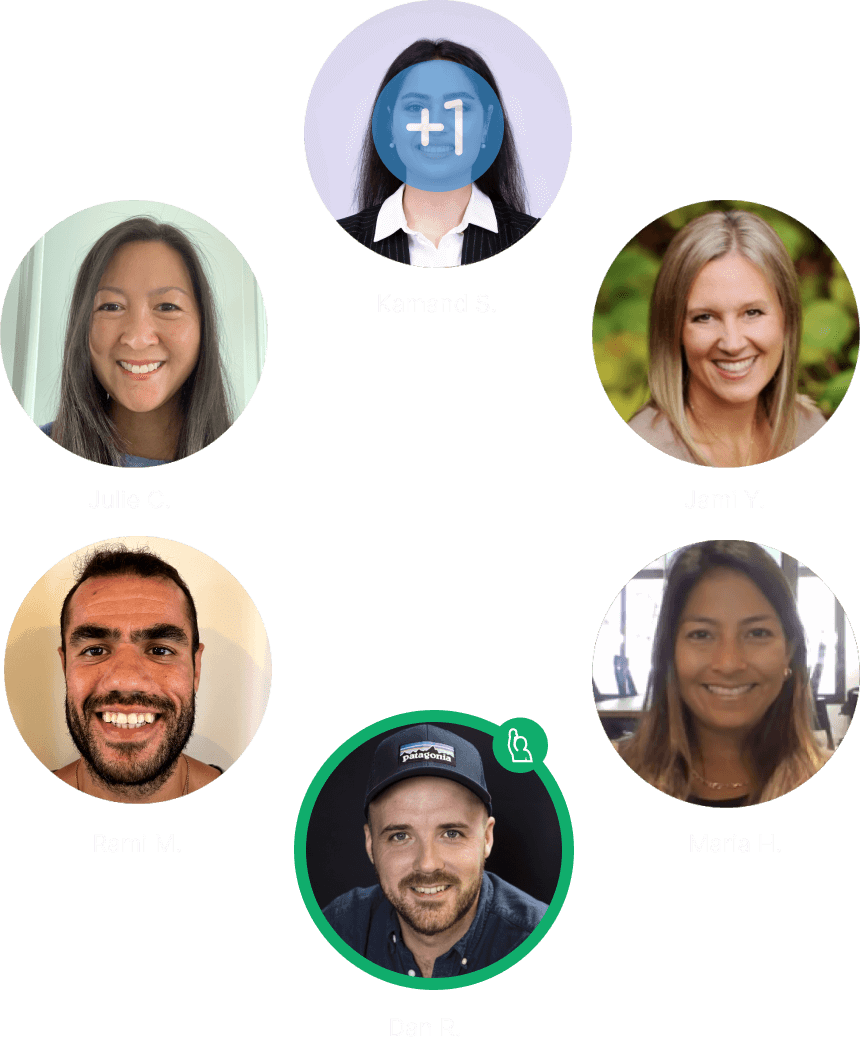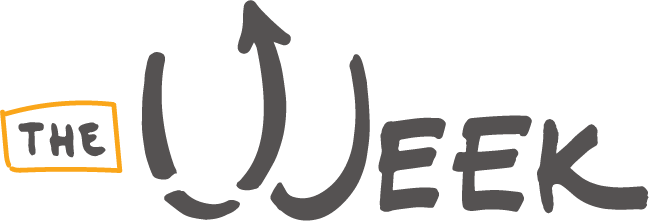We live in cynical times where dreaming big is often ridiculed. Our sights are narrowed by relentless advertising that tells us that the most we can aspire to in this life is: buy some stuff. The antidote to cynicism is imagination.
If we know where to look, we see millions of people who are imagining a better future, and then creating it. Creating a better future is possible, it’s already happening – we just need to know where to look.

What is The Week?
Creating a space for conversations.
The Week is a nonprofit project run by a group of colleagues and friends who, each in our own way, came to see that facing environmental and climate breakdown is likely to become the defining adventure for humanity in the next 10 or 20 years.
Our kids will ask us: what did you know, and what did you do? Figuring out our answer to this question is perhaps one of the most important things we are all invited to do. That’s why we created The Week: to open up a space where everyone can explore this question and come up with their own answers.
Are you ready? Gather 3 to 8 of your friends or colleagues and agree on 3 meeting dates. Within one week, your group will meet 3 times for 90 minutes (60 minutes film + 30 minutes conversation).
What is the Story?
The idea for The Week started with Helene and Frederic, when they started grappling deeply with the reality of the climate emergency. They invited friends to meet 3 evenings in a row, on video calls, during the pandemic, to share what they were learning.
Their friends were so deeply moved they invited some of their friends, and then the friends of their friends, and their colleagues at work to watch the video recordings. In no time, more than 5,000 people had participated in this first version of what would become The Week.
They felt we were onto something. People really responded to having a space to look into these questions, in a simple, straightforward way, without drama or politics. So they thought: let’s turn this into films. They created a nonprofit, spent lots of time fundraising for the films,and talked to a dozen potential film directors until they found the right film team. And the rest… well, you’ll see it when you experience The Week.
What do others say?



How does it work?
-
1. Choose who you would like to invite Choose people who matter to you amongst your friends, family or colleagues. Remember: Don’t watch The Week alone! It’s meant to be watched and processed with a group of people you know.
-
2. Pick 3 dates during the same week to watch the films Pick 3 nights in a row, or spread them out over the course of one week (The Week, you get it). Or pick lunch dates if you do it with colleagues. Binge watching is not allowed. It’s good to sit with the experience for at least 24 hours.
-
3. Sign up for a session Let us know you’re interested and tell us when you would like to meet.
-
4. Send out the invitation We’ll send you an email with everything you need (including a sample invitationmessage you might find useful). When you get together, all you need to do is follow the steps we share with you to start the film, and then to set up the group conversation after the film. So your role is really just to get people together. We’ve made all the rest really simple.
-
5. Enjoy, watch and discuss together! Pick 3 nights in a row, or spread them out over the course of one week (The Week, you get it). Or pick lunch dates if you do it with colleagues. Binge watching is not allowed. It’s good to sit with the experience for at least 24 hours.
The Week & Circl.es
The Week and Circl.es partnership makes the experience seamless. When you host The Week in a CircleSpace^TM, nobody has to worry about what happens during the session. Everything is set up. All you need to do is join and follow the in room instructions. CircleSpace features make it a joy to watch the films together and facilitates a discussion in which everyone is heard.

FAQ's
Too often, climate change can feel like a big, abstract and even overwhelming topic. How do we start to wrap our heads around it, in the midst of everything else going on in our lives? How will it impact me and the people I love? The Week was designed to help everyone to engage with the topic:
- You don’t need any knowledge of climate change to join.
- The process is for everyone, whatever our backgrounds, our religious or political beliefs.
- It’s for people 16 years and older.
- The storytelling is focusing on North-America and Europe (more on this below). You can of course join if you live elsewhere but just know that the storytelling and examples focus on these two continents.
Yes. You don’t need any knowledge of climate change to join. We did the research and explain in everyday language what is happening and what we might do about it. If you don’t care too much about climate change, you are still invited! For all of us, who created The Week, there was a time when we didn’t care too much about it either. It took us really grappling with the topic to truly care about it. We believe that we all have a right to grapple with this. So that if things turn out to be as dire as scientists tell us they will be (and so far, their predictions were unfortunately pretty accurate), we won’t be caught flat-footed, but can say “I have no regrets, I looked into this and decided what I wanted to do – or not do – about it”. That’s what The Week is really about: we create a space where you can grapple with this topic, and at the end, decide for yourself what this means for you and the people you care about.
If you are already very knowledgeable about this topic, you probably won’t learn much new information. But we’ve heard from many people that it was still a powerful experience for them to go through this all again – and it has sometimes deepened their commitment. Most of all, it might be a tool you can use with family members, friends or colleagues who haven’t grappled with this as much as you did. Sometimes, it can be lonely when others don’t know what we know and don’t see what we see – or even dismiss our concerns. And it can be exhausting or frustrating to try to convince them to take the topic seriously. The Week can be a simple and effective way for you to invite them to look into this topic with you. We’ve heard from many people who’ve told us that it really worked – the experience brought them all closer together.
We created films that are not meant to be simply “consumed” before moving on to something else. They are designed to
- Help wrap our heads around the complex problem of climate change.
- Make sense of how it might affect you and those you love.
- And to help you figure out how you want to respond to it.
The group conversations are an essential part of this. They turn the films into a much deeper experience than simply watching a documentary series.
We broke The Week into 3 episodes, because each episode has its own purpose and deserves some time to process. In episode 1, it’s all about facing the reality of what’s coming. Episode 2 is all about understanding how we got into this mess and what’s needed for us to collectively get out of it. And episode 3 is about what each one of us can do, individually and with other people we know. Watching just 1 episode or 2 wouldn’t make much sense. Just like when you watch a series on Netflix, you don’t want to skip an episode, or there will be gaps in the experience.
Coming together 3 times within a few days turns The Week into a powerful experience. When you come back for episodes 2 and 3, the previous episode is still fresh in your mind, the emotion is still there, and you might remember what the other group members shared in the previous conversation. When you spread out the episodes too much, for example letting a week pass by between episodes, the experience is going to be less powerful.
The topics we address in The Week are profound. Each episode brings up profound questions about our lives, our future and the kind of world we want to live in. It takes a day or two to sit with each episode and let it all sink in. If you go from one episode straight to the next, you won’t have time to process any of it before moving on.

